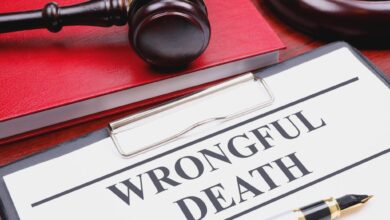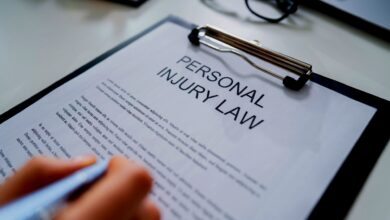Can You Sue for Wrongful Arrest in New York? Legal Remedies Explained
This comprehensive guide will explore these questions, helping you understand your rights and options if you’ve experienced a wrongful arrest in New York.

Wrongful arrest is a serious legal issue that can have lasting impacts on a person’s reputation, freedom, and mental well-being. In New York, individuals who believe they have been wrongfully arrested have the legal right to seek justice. But how does the law work in these cases? Can you really sue for wrongful arrest in New York? What are the legal remedies available? This comprehensive guide will explore these questions and more, helping you understand your rights and options if you’ve experienced a wrongful arrest in New York.
What is a Wrongful Arrest?
A wrongful arrest, also known as false arrest, occurs when a person is held in custody without probable cause or legal justification. Law enforcement officers must have reasonable grounds to detain or arrest someone. When they act without proper authority or violate an individual’s rights, the arrest may be deemed unlawful.
In New York, wrongful arrest is considered a violation of a person’s civil rights under both state and federal law. Victims can pursue compensation through civil litigation against the responsible parties, including police departments, individual officers, and sometimes municipalities.
Legal Standards for Arrest in New York
Before delving into your rights to sue, it’s important to understand what constitutes a legal arrest in New York. Law enforcement must meet certain criteria:
- Probable Cause: Officers must have facts or evidence that would lead a reasonable person to believe that a crime has been committed.
- Arrest Warrant: In many cases, especially for non-violent crimes, an arrest warrant is required.
- Miranda Rights: Upon arrest, individuals must be informed of their rights, including the right to remain silent and the right to an attorney.
If these legal standards are not met, the arrest may be challenged as wrongful.
Common Scenarios Leading to Wrongful Arrest in New York
There are several situations in which wrongful arrest might occur:
- Mistaken Identity: Arresting the wrong person based on incorrect information or misidentification.
- Lack of Evidence: Arrests made without sufficient evidence or probable cause.
- Racial Profiling: Unlawful detentions based on race or ethnicity rather than concrete evidence.
- Malicious Prosecution: When an officer arrests someone out of personal bias or intent to harass.
Legal Remedies for Wrongful Arrest in New York
Victims of wrongful arrest in New York have several legal remedies available:
1. Civil Lawsuit for False Arrest
The most direct remedy is filing a civil lawsuit against the arresting officer and/or police department. To succeed, the plaintiff must prove:
- They were intentionally confined.
- The confinement was not privileged (i.e., there was no legal justification).
- They were aware of the confinement.
- The confinement resulted in damages.
2. Civil Rights Violation Claim (Section 1983 Lawsuit)
Under 42 U.S.C. §1983, individuals can sue government officials for violating their constitutional rights. A wrongful arrest may qualify as a Fourth Amendment violation (unreasonable search and seizure). Section 1983 lawsuits allow victims to pursue compensation in federal court.
3. State Tort Claims
New York law permits victims to file tort claims for false imprisonment, assault, battery, and emotional distress. These claims must often be filed within specific timeframes and may require a Notice of Claim to be filed within 90 days of the incident if the defendant is a government entity.
4. Suppression of Evidence in Criminal Cases
If the wrongful arrest leads to criminal charges, a defense attorney can argue that evidence obtained during the unlawful arrest should be suppressed. This can result in dismissal of charges if the prosecution’s case is significantly weakened.
How to File a Lawsuit for Wrongful Arrest in New York
Here are the steps typically involved in pursuing legal action for wrongful arrest:
- Consult an Attorney: Hire an experienced civil rights attorney familiar with wrongful arrest cases in New York.
- Gather Evidence: Collect police reports, witness statements, video footage, medical records, and other documentation.
- File a Notice of Claim: If suing a government entity, a Notice of Claim must be filed within 90 days.
- Initiate Legal Action: Your attorney will file a formal complaint in civil or federal court.
- Discovery and Trial: Both sides will exchange evidence, and the case may go to trial unless a settlement is reached.
Damages You Can Recover
Victims of wrongful arrest in New York may be entitled to various forms of compensation, including:
- Compensatory Damages: For lost wages, medical bills, legal fees, and emotional distress.
- Punitive Damages: In cases involving malicious or egregious conduct by officers.
- Injunctive Relief: Court orders to reform police practices or prevent future misconduct.
Challenges in Suing for Wrongful Arrest
While the law provides avenues for justice, there are several challenges plaintiffs may face:
- Qualified Immunity: Police officers may be protected from liability if their actions did not violate “clearly established” laws.
- Burden of Proof: Plaintiffs must show the arrest lacked probable cause and caused harm.
- Time Limits: Strict deadlines apply for filing claims, especially against government entities.
High-Profile Cases and Precedents
Several notable wrongful arrest cases in New York have set important legal precedents. These include:
- Brown v. City of New York: The court held that lack of probable cause invalidated the arrest, awarding substantial damages.
- People v. De Bour: Established guidelines for police encounters and the requirement of objective reasoning for stops and arrests.
These cases demonstrate the importance of legal accountability and serve as a guide for current and future claims.
Preventing Wrongful Arrests
To reduce incidents of wrongful arrest in New York, several reforms are essential:
- Body Cameras: Requiring officers to wear body cams can provide transparency.
- Bias Training: Educating law enforcement on implicit bias and cultural sensitivity.
- Stronger Oversight: Independent review boards to investigate misconduct claims.
Conclusion
Wrongful arrest in New York is not just a personal injustice—it is a violation of constitutional rights. If you or a loved one has been wrongfully detained, you have legal remedies available. Filing a lawsuit, pursuing civil rights claims, and seeking damages are all viable options. While there are challenges, working with an experienced attorney can significantly improve your chances of success.
Understanding your rights and taking timely action is crucial. Whether through civil litigation or broader legal reform, holding authorities accountable for wrongful arrest in New York helps protect the liberties of all citizens.











